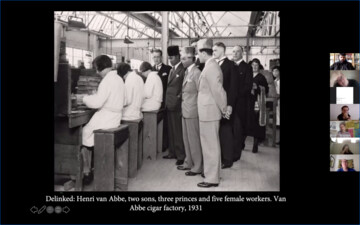In a spirit of decolonial thinking, repair and its cognate form reparation might be useful to discuss in relation to the term Subjectification. If the latter is a term that explores how subjects are created by power, then repair would speak to the damage that is done in that process and how it can be processed or mitigated. It also alludes to the force of coloniality that still dominates most global transactions and how reparation is one of the only viable steps available for those subjects who have benefitted mightily from the fruits of colonial extraction. Whether this might bring back both dignity and agency to cultures that are only objects of the colonial modern matrix of power and thought is something that can only be tried and experienced in the doing, but it seems an important attempt as human society looks to ways to co-exist peacefully with life on this planet. Rolando Vazquez asks: "How can one live an ethical life in a world based on the destitution of the planet and the suffering of the majority of living beings?”. The power in this question lies in its impossibility to answer, but it does set up the issue of the current generation’s responsibility towards both its ancestors and potential successors. Repair/Reparation might be one option to act in pursuit of an ethical life in the face of the mechanisms of subjectification. I will look at some projects and works that touch on this topic, seeking to place them in the context of decolonial (and demodern) ways of sensing.


![Subjectivisation 2 [Discussion #3]](/website/var/tmp/image-thumbnails/0/1477/thumb__logo/Discussion-3.png)
![Subjectivisation 2 [Final discussion]](/website/var/tmp/image-thumbnails/0/1478/thumb__logo/Mick-final-discussion.png)
